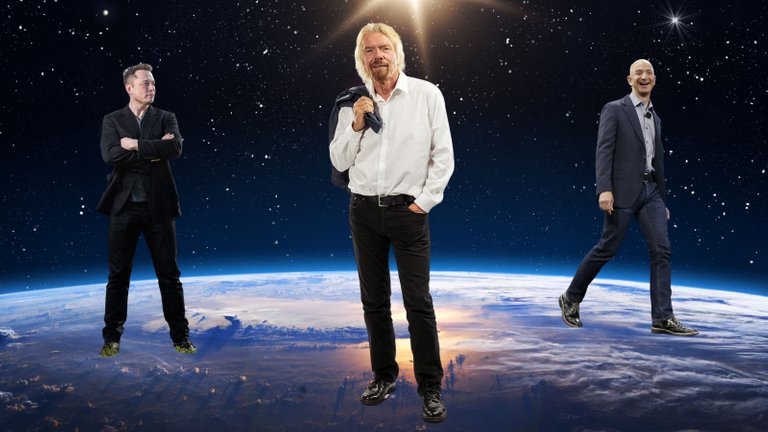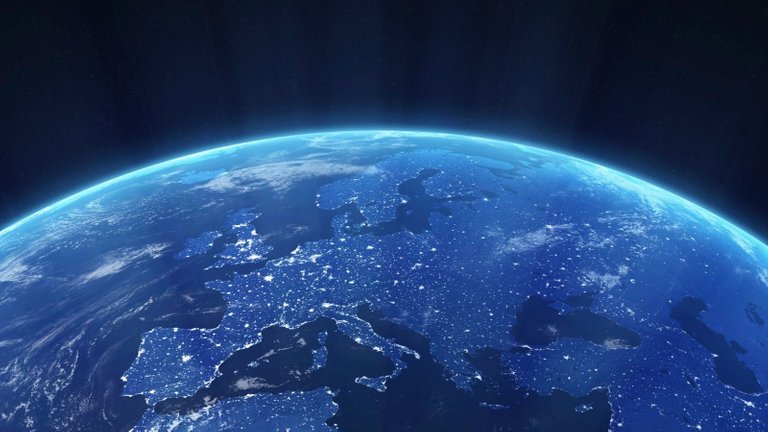Space exploration matters and it should be publicly funded.

On the eleventh of July, 2021, Sir Richard Branson lived his dream. Ever since looking up at the Moon with his father in the 60s, when humanity first traveled to our nearest orbital body, Richard dreamed of going to space himself one day. His career as an entrepreneur would make that dream a reality, the heights of his imagination fueled by his billionaire’s bank account. Branson wanting to go to space isn’t a bad thing, nor is it wrong for anyone to look up, starry-eyed, and strive to reach the heavens. Unquestionably, the modern race to space is a vital component of the future of our species.
And yet, the nature of that future rests upon a dangerous precipice. Will we strive to be our best selves, or will we land among the dystopias of our imagination instead? When we consider space exploration, we must always consider it alongside these basic elements of a functional society: free universal education, free universal healthcare, and the effects of climate change, because these are inexorably interlinked with our exploration of the heavens.
Billionaires in space

The launch on the 11th was not televised. Oddly, Virgin Galactic, Branston’s space tourism company, chose to not center the historic moments of the launch itself but instead highlighted advertising reels and Steven Colbert. Colbert, for his part, seemed completely aware of the ridiculousness of the situation, continuing the feud his talk-show alter-ego from The Colbert Report had with the billionaire. Tongue-in-cheek perhaps, and self-conscious of his odd role as celebrity face to a massive advertising push, Colbert delivered jokes with his usual acerbic style, a riff that played oddly against a moment that should have been historic.
And yet, it fit oddly well with the public perception during and after the event, when people were asking variations of a single question: why are billionaire’s being allowed to profit from the destruction of our planet while they plan their future in colonies beyond our atmosphere? Already, a space hotel is planned to be in operation before 2030, Elon Musk is pushing for a Martian colony in about the same time frame, and Jeff Bezos’ rather petty attempt to “be the first at everything” is shifting trajectory toward a commercial space-express. All of these endeavors are being directed at the ultra-wealthy class of the world’s so-called elite, people who wield an excessive and downright scary degree of power over our lives (yes, yours and mine, quite directly). Why, then, people asked, should we pay attention to this sub-orbital spaceplane flight at all? Why, when climate change is casting serious doubt over the future of our entire global ecosystem and the survival of our species, should we be concentrating any energy on what these rich people do?
Space, another frontier

There are some salient points that we need to address to understand why going to space is vital. Resources on Earth are limited, and many can be gotten at only through destructive means. The Earth is, also, quite fragile. Our species’ own efforts in just over 100 years have shown, clearly, that we have the power to exterminate life as we know it. Nature, too, has shown us that life is dangerously fragile and that random twists of fate can wipe out entire advanced organisms in the blink of an eye. Given this, it is a true statement that humanity’s survival rests on becoming a multi-planet species.
In terms of the resources I mentioned, too, our best path forward is to begin seeking resources from beyond our planet, in order to preserve what we have. Metal and mineral wealth, water, and limitless solar energy are all within our grasp — tools through which we could forever free ourselves from the confines of fossil fuels, horrendous mining practices, and vast ecosystem obliteration.
Space is an opportunity, a dream, and a source of hope. But, the direction our efforts in space are taking will not lead us to the better future that many (including Branson) say is their dream.
One step forward, three steps back

As billionaires and massive multi-national corporations, with more wealth and political power than nation-states (no, I’m not being hyperbolic), spearhead the push into outer space, the rest of us are getting quite literally left behind. Certain pundits, many of them far-left progressives, keep asking why anyone should be interested in space at all (missing the points I’ve made above, among many others), but also missing the fundamental point: it should be a global human effort to enter the age of space exploration. By allowing all progression in this area to be made by a financial minority, a class of humans who have a vested interest in extracting the maximum amount of profit from a situation at any cost, the rest of us miss out on the most fundamentally important scientific effort of our species’ history.
Many people, following the July 11th flight, were making comments about how “money has been wasted” on this effort as if money were a limited commodity. But money is an idea, nothing more — economics is a self-contained set of logical arguments, not an empirical reality (though its effects, like the effects of any human belief system, can be very real and very much disastrous).
The ability we have to correct the problems we face, from climate change, to human health, to the fostering of highly educated future generations, is hampered by our commitment to the false idea that economic theories are hard science. They are inherently logical, yes, but their logic has dependencies, and those dependencies can very easily be questioned. It is only by doing this that we will be able to solve the imminent disasters looming on the horizon, create a better future for all our children, and provide for the exploration of space that will elevate our species’ potential.
In parting

If we wanted to, right now, we could solve all the world’s supposed monetary crisis — the only true cost being the most dramatic restructuring of thought and social order in history. Space is not, financially speaking, outside our grasp. But, if the billionaires and the corporations have their way, it will be. That is because they hail from a class that relies, utterly, on the continuation of our belief in the economic ideas that prop them up — ideas that disenfranchise the rest of us from the mere dream of access to health-care, let alone the dream of access to the wonders of space. To my mind, this makes the issue of who goes to space, and who funds it, one of the most vital in the political sphere today.